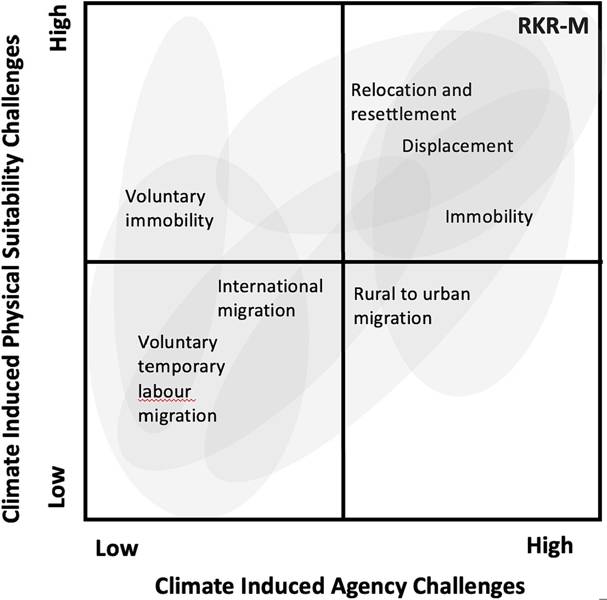While migration is often conceptualized as an adaptive response to climate hazards, migration can also present severe risks to people on the move. In this paper, we attempt to operationalize the Representative Key Risks (RKR) framework of the Sixth Assessment Report of Working Group II of the Intergovernmental Panel on Climate Change (IPCC) for human mobility. First, we provide a framework for understanding how mobility risks emerge by engaging with the concept of habitability. We argue that uninhabitability occurs where the physical environment loses suitability and where there is a loss of agency in local populations. The severity of the risk from the loss of habitability is then represented by the high potential for human suffering. When climate hazards affect physical suitability and agency, the forms of migration that occur undermine human wellbeing and the right to self-determination: forced displacement, community relocation/ resettlement, and involuntary immobility. Second, we show how such forms of mobility are more or less likely along different Shared Socioeconomic Pathways (SSPs). This paper asserts a central concern around human suffering to recentre scenario discourse on where, and how, adaptation, changes to development patterns, and government policies can reduce this suffering. Proactive governance at local, national, and international levels that attends to people’s adaptation and mobility needs can avert the more frequent emergence of severe risks related to mobility in a changing climate.
Gilmore, Elisabeth; David Wrathall; Helen Adams; Halvard Buhaug; Edwin Castellanos; Nathalie Hilmi; Robert McLeman; Chandni Singh & Ibidun Adelekan (2024) Defining severe risks related to mobility from climate change, Climate Risk Management 44.










